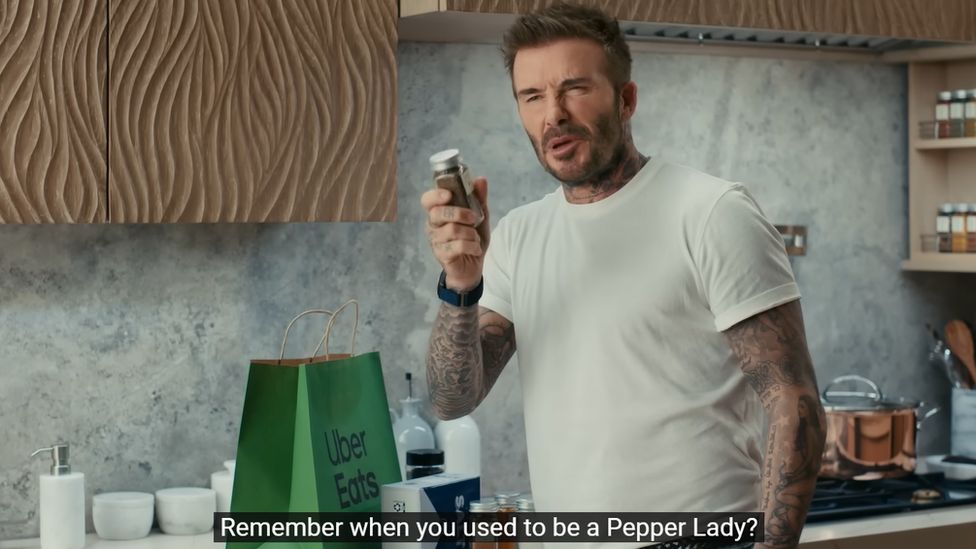Uber Eats recently aired a Super Bowl advert that sparked controversy due to its portrayal of a man experiencing an allergic reaction to peanut butter. The advert has been heavily criticized for making light of a serious health issue and has raised concerns about the company’s advertising practices. In this article, we delve into the details of the advert, the backlash it received, and the implications for Uber Eats.


Key Points:
The Food Allergy Research & Education (FARE) charity said it was “surprised and disappointed” to see the company use allergies as a joke.
One person, himself allergic to peanuts, called the ad “disgusting, tone-deaf and completely unnecessary”.
The BBC has approached Uber Eats for a comment.
“Don’t Forget Uber Eats” was launched as the company’s Super Bowl advert with millions of Americans expected to view it on Super Bowl Sunday.
It features former Friends co-stars Jennifer Aniston and David Schwimmer, as well as David and Victoria Beckham.
Overview of the Uber Eats Super Bowl Advert
The Uber Eats Super Bowl advert, titled “Don’t Forget Uber Eats,” featured several celebrities, including Jennifer Aniston, David Schwimmer, and David and Victoria Beckham. The advert humorously depicted people forgetting various things, but it sparked controversy with a scene involving a man experiencing an allergic reaction to peanuts.
Criticism from Food Allergy Organizations
The advert drew immediate criticism from organizations such as the Food Allergy Research & Education (FARE) charity and Food Allergy Canada. These organizations expressed disappointment and concern over the trivialization of food allergies, emphasizing the serious and potentially life-threatening nature of allergic reactions.
Response from Allergy Sufferers
Individuals with peanut allergies, such as JD Arland from Indiana, voiced their outrage on social media platforms. Arland, who has firsthand experience with food allergies, described the advert as “disgusting, tone-deaf, and completely unnecessary.” His sentiments were echoed by many others who felt marginalized and offended by the portrayal of allergic reactions.
Impact on Public Perception
The controversy surrounding the Uber Eats advert has had a significant impact on public perception. Many individuals expressed disappointment in the company’s marketing tactics, with some vowing to boycott the service. The advert’s portrayal of allergic reactions has raised questions about the responsibility of advertisers and the need for greater sensitivity in marketing campaigns.
Also Read: New Delhi World Book Fair 2024 From 10th to 18th February
Uber Eats’ Response
Uber Eats has yet to issue a formal response to the backlash generated by the advert. The company has been approached by media outlets, including the BBC, for comment but has not provided any official statements regarding the controversy. The lack of response has further fueled criticism and speculation surrounding Uber Eats’ handling of the situation.
The Importance of Allergy Awareness
The controversy surrounding the Uber Eats advert highlights the importance of allergy awareness in advertising. Advertisers must exercise caution when depicting sensitive topics such as food allergies to avoid causing offence or harm. The incident serves as a reminder of the need for greater education and understanding of food allergies in society.
Frequently Asked Questions FAQs:
- Why is the Uber Eats Super Bowl ad facing criticism?
- The ad sparked outrage for making light of a man’s allergic reaction to peanut butter, which many found insensitive and inappropriate.
- What were the reactions from food allergy organizations?
- Food Allergy Canada and FARE expressed disappointment and called for the ad to be edited due to its portrayal of food allergies.
- How did individuals with food allergies respond to the ad?
- People like JD Arland criticized the ad for perpetuating harmful stereotypes and expressed frustration over the lack of sensitivity towards food allergy sufferers.
- What is the significance of the disclaimer in the ad?
- Despite the small disclaimer, many argue that it does not justify the insensitive portrayal of allergic reactions and fails to mitigate the potential harm caused by the ad.
- What is the broader impact of such advertisements?
- The controversy highlights the need for responsible advertising and increased awareness about the seriousness of food allergies, especially in widely viewed platforms like the Super Bowl.








